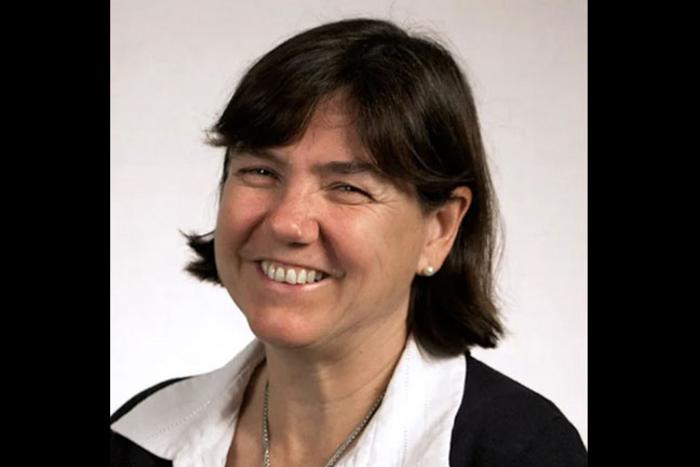Rensselaer Polytechnic Institute’s Catherine Royer, Constellation Chair Professor of Bioinformatics and Biocomputation at the Shirley Ann Jackson, Ph.D. Center for Biotechnology and Interdisciplinary Studies (CBIS) and professor of biological sciences, has received a grant of over $400,000 from the National Science Foundation to investigate enzymes from organisms living in deep sea environments.

Credit: Rensselaer Polytechnic Institute
Rensselaer Polytechnic Institute’s Catherine Royer, Constellation Chair Professor of Bioinformatics and Biocomputation at the Shirley Ann Jackson, Ph.D. Center for Biotechnology and Interdisciplinary Studies (CBIS) and professor of biological sciences, has received a grant of over $400,000 from the National Science Foundation to investigate enzymes from organisms living in deep sea environments.
“Ultimately, I hope to better understand how these enzymes function under the high pressure that is present in the deep sea,” said Royer. “They also thrive in high or low temperatures. Biomolecules from the surface do not have the ability to survive these extreme conditions.”
Understanding the differences between deep sea enzymes and those at the surface could pave the way for the development of new enzymes with biotechnological applications. The deep sea is home to more than 80% of the Earth’s microbes. There are 15 times more viruses and bacteriophages than microbes in the world’s oceans, and they contribute to the deaths of 20% of those microbes on a daily basis. This releases 145 gigatons of carbon each year, which includes massive amounts of deoxyribonucleic acid (DNA).
In this research, Royer will study Dnases, which break up DNA polymers. Many oceanic microbes exhibit extracellular Dnase activity, which shows the enzyme’s significance to oceanic biofilm dynamics and geobiochemical cycling, or the circulation of the essential elements of living matter.
“We have so much to learn from organisms living in the deep sea and other extreme environments,” said Curt Breneman, dean of Rensselaer’s School of Science. “Dr. Royer’s research on how biomolecules function under very high pressure will expand our understanding of fundamental biochemical mechanisms and may also provide new insights into new approaches towards drug development.”
About Rensselaer Polytechnic Institute:
Founded in 1824, Rensselaer Polytechnic Institute is America’s first technological research university. Rensselaer encompasses five schools, over 30 research centers, more than 140 academic programs including 25 new programs, and a dynamic community made up of over 6,800 students and 110,000 living alumni. Rensselaer faculty and alumni include upwards of 155 National Academy members, six members of the National Inventors Hall of Fame, six National Medal of Technology winners, five National Medal of Science winners, and a Nobel Prize winner in Physics. With nearly 200 years of experience advancing scientific and technological knowledge, Rensselaer remains focused on addressing global challenges with a spirit of ingenuity and collaboration. To learn more, please visit www.rpi.edu.
Contact:
Katie Malatino
Sr. Communications Specialist
[email protected]
838-240-5691
For general inquiries: [email protected]
Visit the Rensselaer research and discovery blog: https://everydaymatters.rpi.edu/
Follow us on Twitter: @RPINews
###




